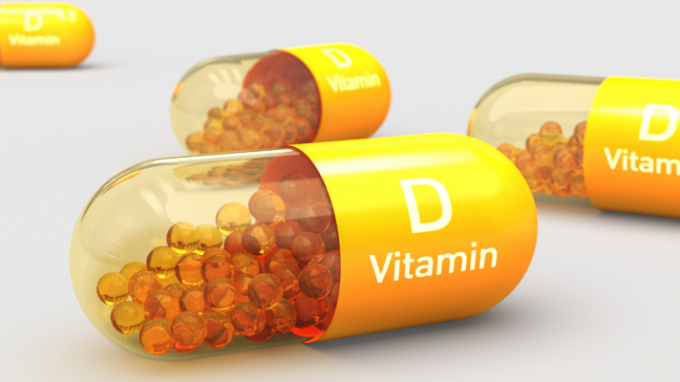Vitamin D helps promote bone health. It can also play a vital role in the wellbeing of women who have polycystic ovary syndrome (PCOS).
Vitamin D, is a fat-soluble vitamin that helps promote bone health. It also helps regulate the immune system and supports neuromuscular and cardiovascular function. Vitamin D can also play a vital role in the wellbeing of women who have polycystic ovary syndrome (PCOS).
Vitamin D and PCOS
PCOS is a complex condition that causes women to have irregular menstrual periods, obesity, cysts on the ovaries and high levels of male hormones. This can affect a woman’s fertility as well as increase the risk of other health issues such as diabetes. Calciferol deficiency (a.k.a. Vitamin D2 deficiency) has been associated with insulin resistance in mice, which is similar to what happens in women with PCOS. Insulin resistance prevents the body from converting sugar into energy. Vitamin D2, Calciferol, may help treat insulin resistance, which can help improve fertility, ease menstrual issues and reduce the risk of diabetes.
How Calciferol Helps With PCOS

Women with PCOS often struggle with irregular menstrual periods or what’s known as oligomenorrhea (light or infrequent menstruation). Calciferol helps regulate the menstrual cycle, making it easier for women to get pregnant and easier for them to deal with this health issue.
Women with PCOS are at an increased risk of developing Type 2 diabetes later in life, which can be largely prevented by good diet and exercise. Calciferol has been shown to boost insulin secretion during a women’s menstrual cycle, which helps regulate blood sugar levels. This means that women with PCOS who are calciferol deficient are more likely to develop Type 2 diabetes over time.
Calciferol can reduce the symptoms of PCOS such as excessive hair growth on the face or body. Excessive hair growth is often caused by male hormones that calciferol helps regulate. Calciferol has also been known to relieve acne, fatigue and mood swings that are often associated with PCOS. Symptoms like anxiety and depression are normally caused by low serotonin levels. Calciferol helps boost those levels, thus improving the mood and mental health of women with PCOS.
Women undergoing PCOS treatment may suffer from nausea, vomiting and diarrhea, which can be relieved with calciferol. For example, women who take insulin experience nausea and vomiting, and calciferol can ease those side effects.
How Much Vitamin D Should Women With PCOS Take?
A precise vitamin D dosage for PCOS relief doesn’t exist. Women between the ages of 19 and 50 should take 600 IU on a daily basis, although this may not be enough for most women with PCOS. In one study, women who were given 4,000 IU of calciferol per day for 12 weeks showed an improvement in insulin resistance.
Where You Can Find Vitamin D
Calciferol is found in foods such as fatty fish like mackerel, salmon and tuna, but fish oil can be taken in the form of supplements. It is also naturally produced when your skin is exposed to UV rays from sunlight. This means that it’s important for women who have PCOS to get out of the house and spend some time in the sun; just make sure you wear sun protection!
Vitamin D is essential for women with polycystic ovary syndrome (PCOS) because it can help treat insulin resistance, regulate the menstrual cycle and boost fertility. It also helps ease uncomfortable side effects like hot flashes, anxiety and depression. Calciferol is naturally produced by our skin when exposed to sunlight or found in foods such as fatty fish. If you are deficient in this vitamin, talk to your doctor about how much you should take to help improve your health.




